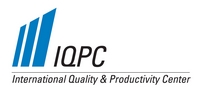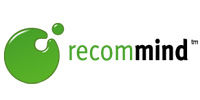- You are here:
- Home »
- Electronic Discovery »
- IQPC Brussels Focus: Recommind, search powered IRM software
IQPC Brussels Focus: Recommind, search powered IRM software


Two of the main topics at the IQPC Conference in Brussels last week on e-discloure (with much written of late in the e-discovery blogs) has been concept searching and “predictive tagging”. But one vendor appears to be way ahead of the curve: Recommind. We had the opportunity to interview Hartwig Laute, Director European Operations and Jason Robman, Corporate Counsel for the company.
What is concept searching? It is a method of searching files not based on keywords, but on the subject matter of the email, document, paragraph, or sentence. It is promoted by a number of vendors each having its own name. For some overviews on concept searching click here, here, here and here.
Recommind is a 10-year old company based in San Francisco, California with offices throughout the United States, in Germany and London. Recommind’s pioneering document review, analysis and production product, Axcelerate eDiscovery, is 2 years old. But Axcelerate eDiscovery is different than other document review software. Unlike other systems, which can only place documents found by basic keyword search into reviewer-created categories, Axcelerate eDiscovery automatically categorizes documents into computer-generated “buckets” (discussed above in the links on concept searching) based not just on keyword frequency but on conceptual meaning as well – irrespective of individual keywords. And the software doesn’t just dump documents into buckets, it actually prioritizes them within each bucket – such that each document is neatly ordered and prioritized based on its content, irrespective of individual keywords. The system also automatically identifies key documents, people, phrases and concepts of interest.
Hartwig put the software through its paces in a demonstration for conference participants which kept the crowd riveted. Using a data set from the Enron investigation review, Hartwig showed how the software could take a concept search on the term “brownout” (as you will recall a major count against Enron was its manipulation of energy markets to earn subsidies; for more click here).
Hartwig showed how the system could “learn” the context of the topic “brownouts” by taking some example documents containing the term and letting the system in a short training phase “understand” what the underlying meaning was. In the live presentation, the system returned a number of documents which matched the topic of the initial documents perfectly. With the trained topic (which took Hartwig less than 5 minutes to train) the system can now – for each document to be reviewed – tell the reviewer whether it belongs in a specific category, and to what extent (i.e. its priority within the category). This suggestion is what Recommind calls predictive tagging and it really makes a difference.
The system not only suggests buckets but also highlights what was relevant to the search by color coding words (for instance yellow for the culling terms and brown for a word relevant to the topic). It literally “suggested” topics and categories to each document and puts them in boxes where they belong. Entire document sets can also be filtered down by document type, language, content, party, timeframe, individual, and many other elements to quickly find relevant documents.
And while Axcelerate eDiscovery is an impressive end-to-end review platform, with built-in processing, deduplication, filtering, review, analysis, predictive tagging and production capabilities, it is Recommind’s new product, Insite Legal Hold, that is the real star for enterprises to be proactively or reactively eDiscovery ready. It is a remarkable early case assessment (ECA) product providing processing, culling, collection and hold.
As explained by Jason Robman, Insite Legal Hold indentifies, “crawls” and indexes information from the many data sources a company has. From these indices, a company can conduct “live” and in-place exploration of data before applying a legal hold to quickly and efficiently locate and preserve potentially relevant data.
Recommind clients range the whole gamut from law firms to corporations to government entities. In his presentation, Hartwig showed us the Bundeskartellamt use case and explained how and why the German Cartel Authorities rely on Recommind technology.
We will have more about Recommind and its break-through technology in a few weeks. It is part of our new series of profiles on major players in the e-discovery/e-disclosure market. In the meantime, those interested in learning more about Recommind, their technology and their thought leadership via their risk monitoring center and resource library center can visit: www.recommind.com
